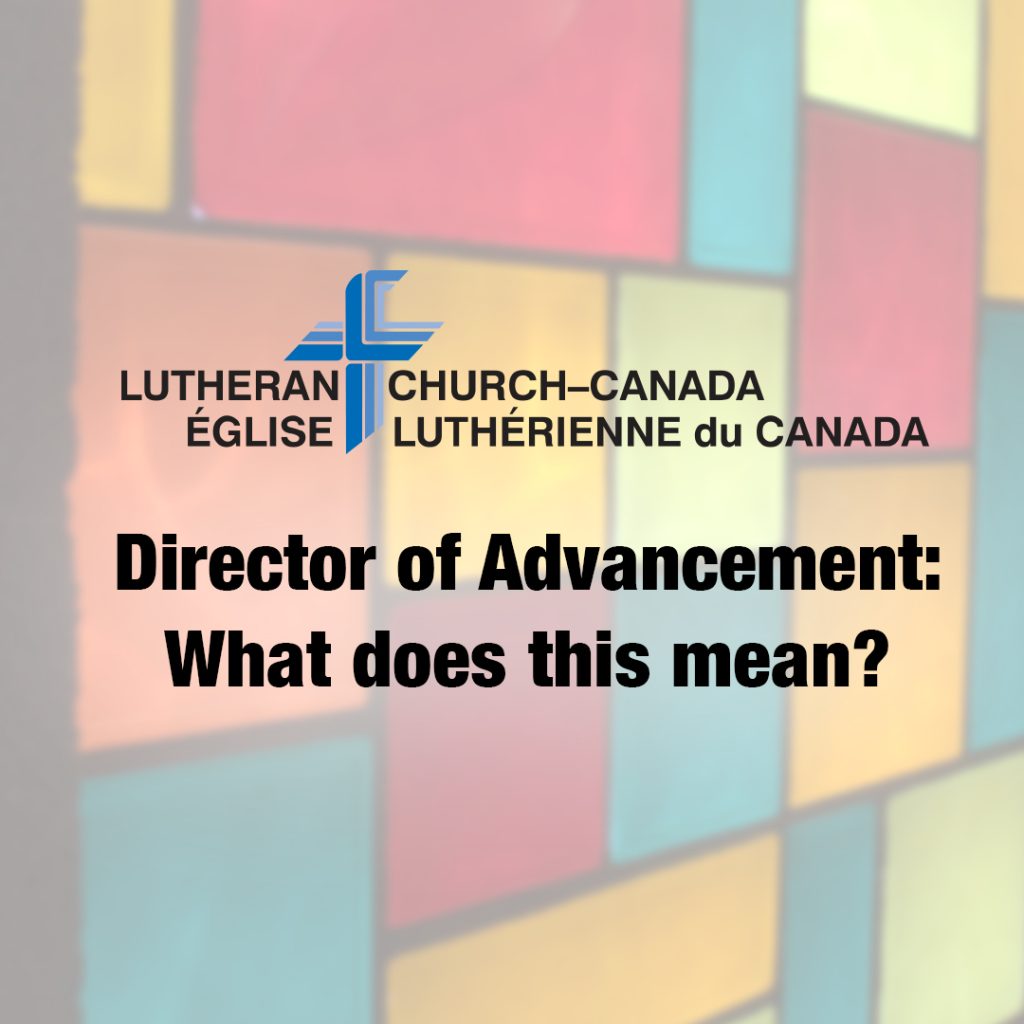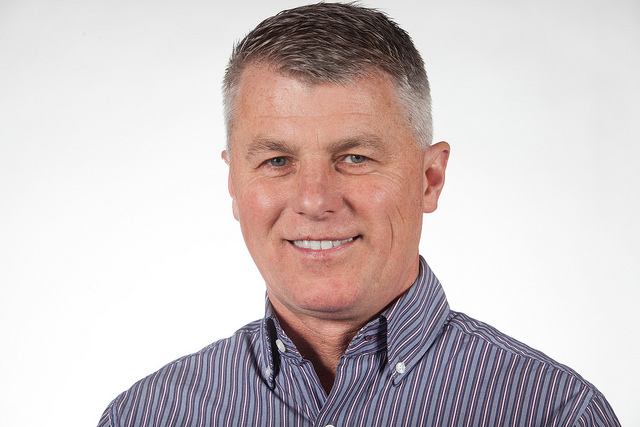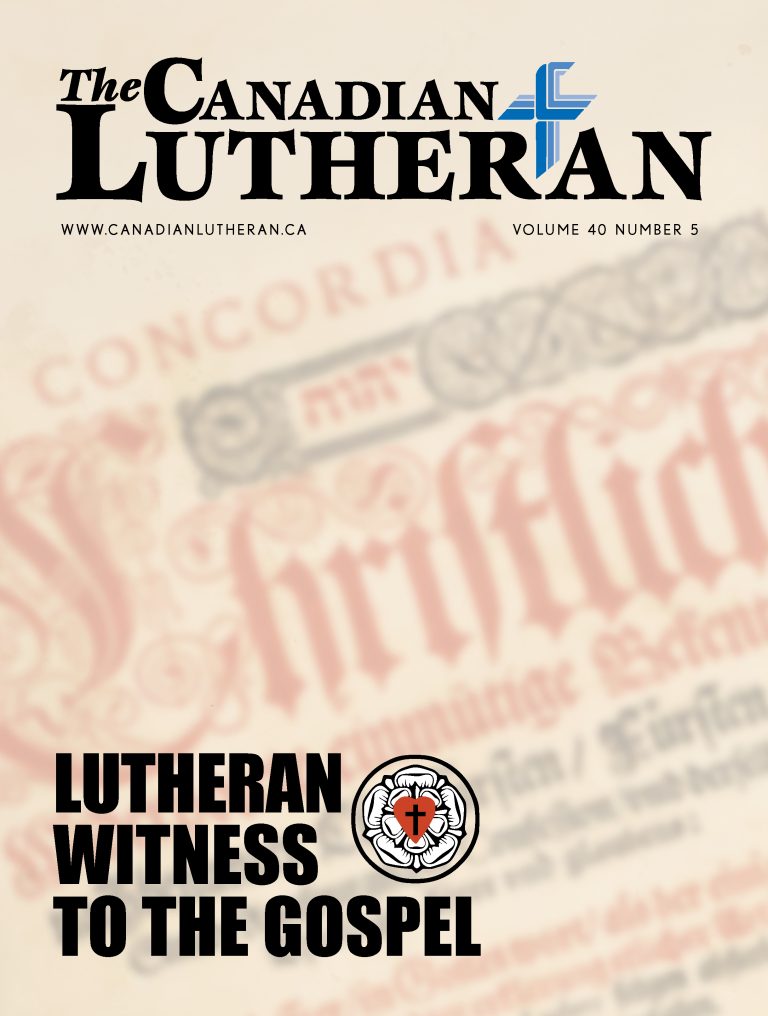Director of Advancement: What does this mean?
 by David Friesen
by David Friesen
It has been a little over one year since I started in my role as Director of Advancement with Lutheran Church–Canada (LCC), having formerly served as a Gift Coordinator for Lutheran Foundation Canada in Central Region for 10 years.
Although it has been a very busy year, much of the work I have been doing has been behind the scenes, including the significant amount of work on LCC’s new Strategic Framework leading up to the 2022 Synod Convention. As a result, you might find yourself asking, “What does advancement mean? How has David been doing his job? How does it impact my congregation?” These are great questions! In the interest of transparency and good communication, let’s dig a little deeper into this role.
Unlike fundraising which focuses primarily on the work of raising money, or development which includes communications and fundraising activities, advancement is more like a complete systems approach. It considers the overall needs and direction of the organization, works with organizational leadership to develop strategic plans to address these needs, communicates those plans out to its members, fosters improved relationships, and encourages strong stewardship principles to bring about positive change. Applying this to LCC, the role of advancement encourages members in their spiritual growth, challenges them to become greater stewards of all God’s richest blessings, and develops needed resources to accomplish the Lord’s work.
At a high level, the primary responsibilities of the Director of Advancement to Lutheran Church–Canada fall under two distinct areas:
- Cultivation and enhancement of congregation relations across synod.
- Identification and development of ongoing sources of funding to help achieve the mission and ministry of our church today and into the future.
These functions work hand-in-hand to strengthen the sustainability of our synod, enhance unity between our regions and congregations, and position our synod for mission expansion and congregational vitality.
Some have asked what I hope to achieve in this role and that makes sense, but I would also like our members to think that this work is more about what we as a synod hope to achieve together. Having said that, I do hope to enrich the relationships that congregations have to each other across our synod, and to the work and purpose of LCC. I hope to dispel some of the perceptions that are out there regarding a variety of things synod-related. I hope to encourage congregations and individuals to grow in the grace of giving, to be great stewards of what God has blessed them with, and to be passionate about the mission and ministry of their church body. I hope to inspire our members to learn more about their faith, to engage in the study of God’s Word, to live out their lives in greater service to their Lord and their neighbour, and to recognize that they have already received the greatest gift ever (salvation through Christ) and that so many others have not. As Martin Luther wrote in Thesis 62, “The true treasure of the church is the most holy Gospel of the glory and grace of God.” So, through your engagement with your congregations and synod, and through your financial support, synod can expand its mission and ministry outreach and impact many lives. Psalm 145:4 reads “One generation shall commend your works to another and shall declare your mighty acts.” Our voices and actions today add to and build on what our forefathers did (within the church) and create a foundation for what our children’s children will do in the future.
Considering the biblical and spiritual nature of my work, it is fair to ask how our Lutheran confessions influence what I do. Simply put, they influence it 100%. But let me focus on four specific articles in the Augsburg Confessions (click the links below to read the full articles):
- Article V: Of the Ministry
- Article VI: Of New Obedience
- Article VII: Of the Church
- Article XX: Of Good Works
With this foundation and understanding, let’s look at the last 12 months in a bit more detail.
Purpose and Priorities Planning
Although not solely a function of Advancement, the Purpose and Priorities Planning (PPP) process is a foundational effort to realign LCC’s priorities, bring clarity to its strategic framework (mission, vision, values), and establish goals that guide our synod in both the short and long term.
The PPP process began in mid-2021 and you can read more about the process and its various stages up until this point Here.
Since the 2022 Synod Convention this past summer, together with the Board of Directors, LCC leadership, and LCC staff, the focus has been on developing strategic initiatives which will be implemented over the next 4 years as part of LCC’s workplan. As the primary leader through this process, I have traveled extensively across Canada meeting with pastors, circuits, lay leaders, and speaking with congregations about the process and its outcomes. A written update on the PPP process is included in the January/February issue of The Canadian Lutheran.
Congregation Relations
Since 2019, Lutheran Church–Canada has been operating under a new structure. For many members in the pew, this might not make much of a difference in their everyday faith life. However, the new structure does make a difference in various aspects of how LCC functions. One of these areas is the relationship between congregations and the synodical office. Where previously the district offices were responsible for most of the interaction with congregations, today that responsibility lies with the synodical office. As Director of Advancement, I have a unique role in this relationship, especially as it relates to supporting LCC’s Mission (To serve, strengthen, and equip congregations for bold, faithful, Christ-centred witness). The feedback received through the PPP process (which involved pastors, deacons, laity across the country!) made it very clear that congregations desired:
- More transparency and understanding in terms of structure and operations.
- Better communication on what LCC is doing (this included opportunities for congregation involvement).
- Access to materials and resources to assist them in doing their work.
- Greater unity between regions, congregations, and the synodical office.
With these things in mind, I have been working with LCC’s president, regional pastors, circuit counsellors, Regional Mission and Ministry Councils, and congregational leadership to address these needs.
There are currently 275 active congregations and 30 circuits across a vast geographical area here in Canada. Given the importance of developing better relationships with congregations, the most impactful way to deliver information and updates is in-person, complemented by other forms of communication. For much of my time, I have been on the road, in front of LCC constituents, doing just that. So far, I’ve addressed 18 circuits; spoken to 22 congregations after worship; and visited one-on-one with 62 pastors and both seminary presidents as well as numerous lay members; and addressed two pastor/church worker conferences as well as Regional Mission and Ministry Councils (RMMCs). Perceptions are not changed overnight and bringing about a greater sense of unity and understanding across our synod will take time. Please consider having me come out to your congregation to answer questions and listen to your input.
Funding Our Synod’s Mission and Ministry Work
One of the most significant parts of my role as Director of Advancement, is the identification and development of ongoing sources of funding to support our current work program and provide opportunities for mission and ministry expansion. Without adequate financial resources, our synod simply cannot increase this work domestically or internationally, let alone accomplish the work we have already committed to do. Financial support for this work is only possible through the faithful stewardship of God’s blessings by our members, our congregations, and our synodical family organizations. Developing sources of funding focuses on annual needs through congregation remittances and individual support and longer-term planning with the building of an endowment.
LCC’s current operating budget is about $3.5 million dollars. Over the past four years since restructuring, LCC congregations have provided about two-thirds of this amount through their remittances. That means, at this time, the other one-third must come from somewhere else. Through better congregation engagement and education, especially about the identified needs within the Purpose and Priorities Plan, our hope is congregations will better understand the needs and respond accordingly. Hearts and minds can be changed when the mission is understood and deemed impactful. Again, I encourage your congregation to invite met to speak about mission and ministry plans and development efforts.
Finally, in case there is any question about the relationship between my work and the work of Lutheran Foundation Canada’s Gift Coordinators, these are not competing roles. Rather it is important to know that both are focused on supporting LCC’s mission and ministry through complementary processes.

Should you have more questions about your Director of Advancement’s work, please do not hesitate to contact me at dfriesen@lutheranchurch.ca or (204) 791-9949 (cell). As always, please continue to keep your synod in your prayers, knowing that by ourselves we can accomplish nothing, but in Christ “who makes all things new”, we are able to fulfill our mission.
———————
David Friesen is Lutheran Church–Canada (LCC)’s Director of Advancement.



